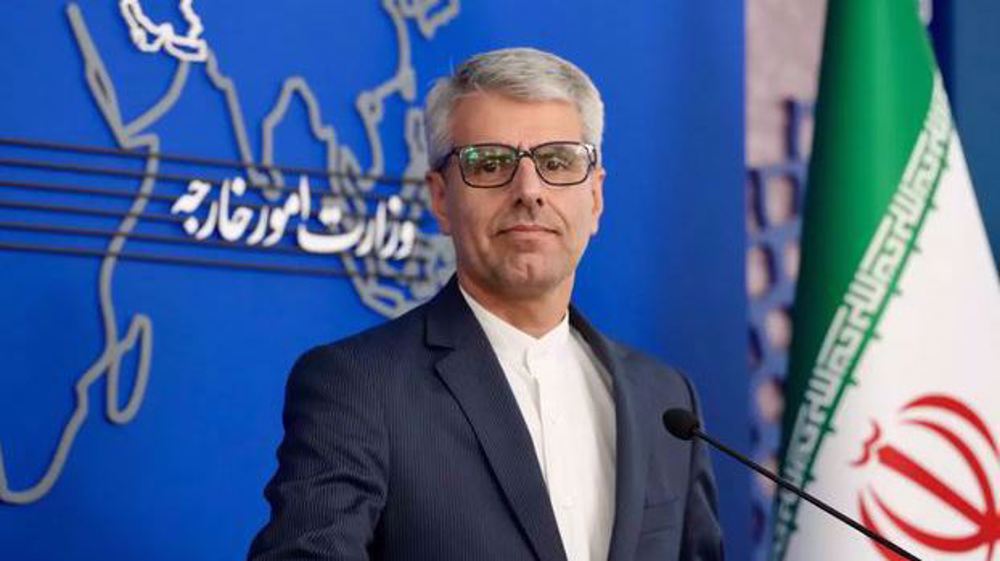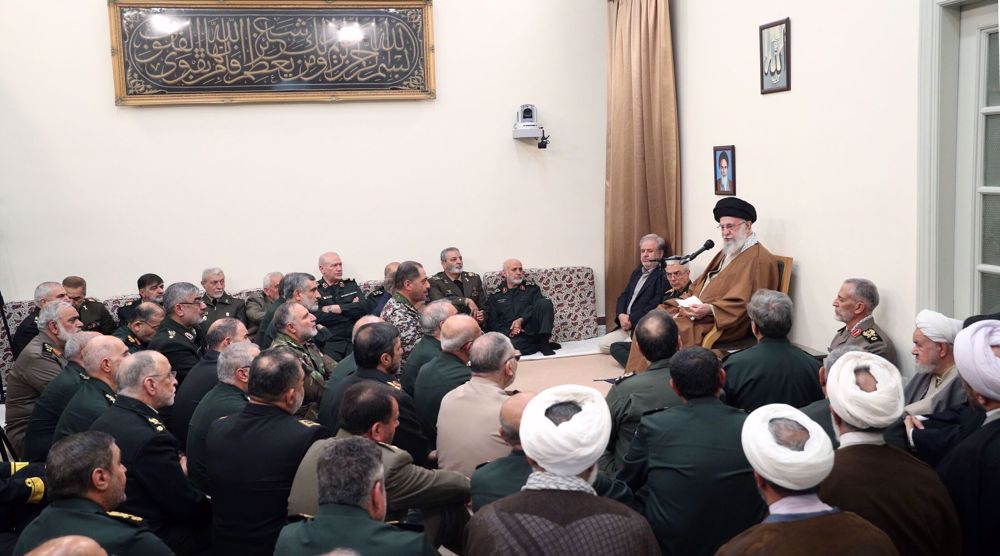US cannot weaken Iranian youths by arresting famous scientist: Academic
A senior Iranian academic has criticized the attitude of the United States government toward young Iranians, particularly university students and researchers, saying the US will not be able to weaken the "iron will" of the youths through such measures as the recent arrest of an Iranian stem cell researcher.
"Iran's researchers and intelligent youth have found their way. They know what to do and how to solve their country's problems, how to develop their universities and how to realize their revolutionary goals," Vice-Chancellor of Tehran's Tarbiat Modares University Yaqoub Fat'hollahi said in an exclusive interview with Press TV.
Media reports said on Saturday that Masoud Soleimani, a top Iranian stem cell scientist, has been put behind bars in the United States without trial for the past eight months.
In October 2018, Soleimani, a professor and biomedical researcher at the Tarbiat Modares University (TMU) in Tehran, was arrested by the US Federal Bureau of Investigation (FBI) upon arrival in the US.
"Such methods [used by the United States] will not weaken the iron will of Iranian youth and Iranian universities, and they will resolutely pursue their goals," the interviewee said.
He warned about the damage such behavior would do to the image of the people and government of the United States.
Leonard Franco, the detained scientist's attorney in Atlanta, says his client has been held in jail there without bail.
Soleimani had been invited by the Mayo Clinic in Minnesota to lead a research program there, but he was secretly indicted by the FBI, which also canceled his research visa. Neither the FBI nor the US prosecutors have so far officially commented on his detention.
Elsewhere in his interview, Fat'hollahi said those Iranians who, like the jailed scientist, are working for the independence of their country are subject to such treatment by the US government "at any time" and "and it would be wise for them to be cautious in the face of such behavior."
Washington, he said, has been intolerant of Iran's progress toward scientific independence since the victory of the Islamic Revolution in 1979.
Fat'hollahi called on the FBI to come clean about the circumstances under which the Iranian scientist was arrested, saying, "I urge the FBI to tell the world’s public opinion why they have arrested him and say what illegal measure he has taken."
He also urged "scientific circles in the United States and other developed countries, including Europeans, to help put an end to this unjust behavior and secure the Iranian researcher's release," adding, "Such behavior harms US people and government more than us."
According to TMU authorities, the hearing in Soleimani's case has been adjourned for at least three times since October and his family and the TMU have so far paid $70,000 to his lawyers to prove his innocence, but all to no avail.
Almost 50 Iranian nationals are currently imprisoned in the United States under various pretexts, the most important of which being bypassing the US sanctions.

Yale's decision to terminate Dr. Helyeh Doutaghi aimed to silence anti-genocide voices: Activists

Iran condemns terror attack in southeast that killed 8 Pakistani nationals

Leader: Ill-wishers ‘frustrated and angry’ over Iran’s increasing advances
Protesters gather in Times Square demanding release of Mahmoud Khalil
Yale's decision to terminate Dr. Helyeh Doutaghi aimed to silence anti-genocide voices: Activists
Iran’s aluminum output down by nearly 5% in year to March
Missiles fired from Yemen triggers sirens in Israeli-occupied territories, closes airport
Iran condemns terror attack in southeast that killed 8 Pakistani nationals
Deir al-Balah massacre: Israeli airstrikes killed 6 brothers at once
Iran currency surges on positive news from Iran-US talks
VIDEO | Spain’s Seville hosts concert in solidarity with Palestinians







 This makes it easy to access the Press TV website
This makes it easy to access the Press TV website